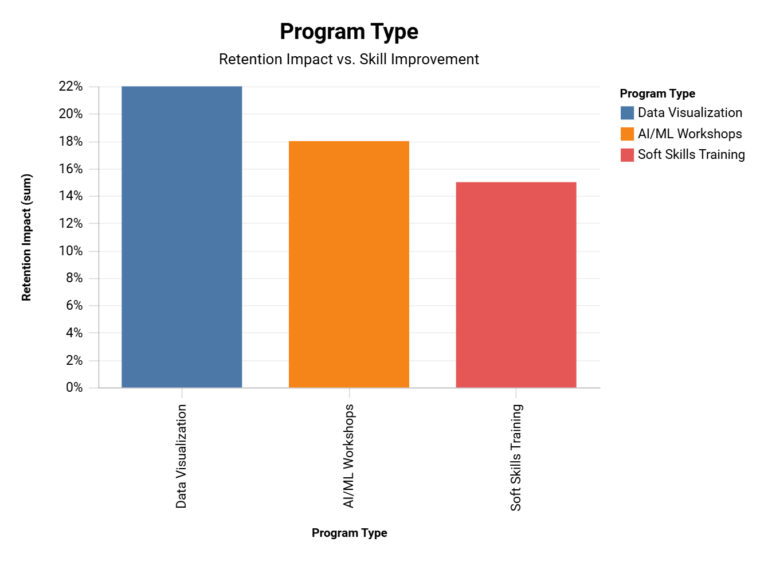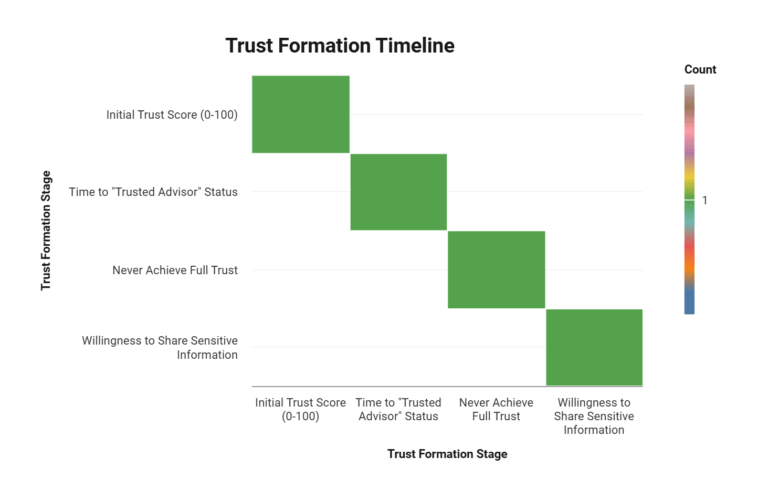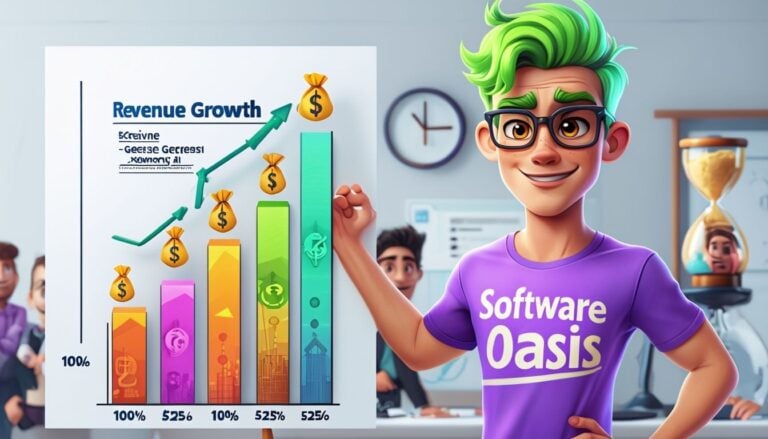A Data-Centric Approach to Analyzing the Skills Gap in Entry-Level Accounting: Statistical Insights for Education and Training Programs
Skills Gap in Entry-Level Accounting: Current Landscape
The accounting industry faces a 120,000-person talent shortage by 2027 due to retiring CPAs (AICPA 2024) and a 22% attrition rate among first-year professionals (Robert Half 2025). Despite 98% of firms using AI tools, only 34% of entry-level accountants demonstrate proficiency with advanced technologies like predictive analytics (Intuit QuickBooks 2024).
Quantifying the Skills Deficit
Emerging Technical Proficiency Gaps in Accounting
The accounting profession is experiencing significant technical skill deficits as the industry rapidly evolves. Recent studies highlight critical gaps in advanced data analysis, AI implementation, and ESG reporting, underscoring the urgent need for targeted upskilling initiatives.
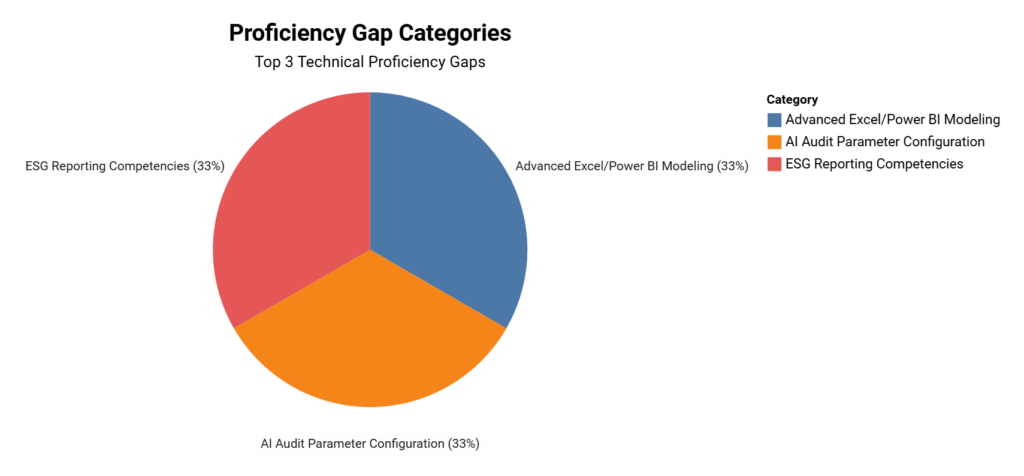
- 57% lack advanced Excel/Power BI modeling skills (IMA 2025)
- 43% cannot configure AI audit parameters (PwC Tech Adoption Survey 2024)
- 62% of firms report inadequate ESG reporting competencies (Gaper.io 2025)
Soft Skills Shortages
- 47% of employers cite deficient communication skills (Deloitte 2025)
- 39% struggle with cross-department collaboration (ProAlt 2025)
Demographic Trends in the Accounting Industry
The accounting profession is experiencing shifts in its workforce composition, with notable differences between entry-level positions and industry averages. This chart highlights key demographic factors, including STEM graduates, remote workers, and CPA candidates, revealing both challenges and opportunities for the industry's future.
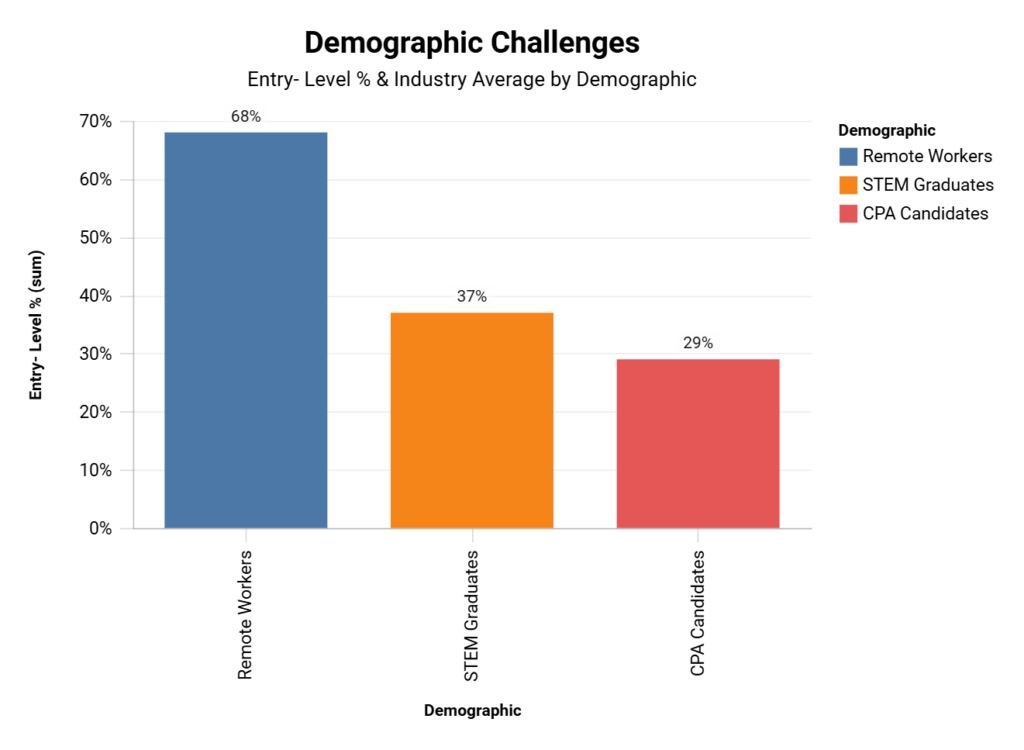
| Demographic | Entry-Level % | Industry Average |
|---|---|---|
| STEM Graduates | 37% | 41% |
| Remote Workers | 68% | 52% |
| CPA Candidates | 29% | 42% |
Education-Training Program Effectiveness
Curriculum Mismatches
- 63% of academic programs lack updated AI/blockchain curricula (Xenett 2024)
- 35% apprenticeship dropout rate in the first 18 months (NECA 2025)
Successful Models
- Schools integrating AI tools see 31% higher CPA pass rates (Wiley 2025)
- VR simulations reduce audit training time by 41% (Interplay Learning 2024)
Emerging Skill Gaps in Accounting
The accounting industry is facing significant skill gaps as new technologies and regulatory requirements reshape the profession. This chart demonstrates the disparity between industry demand and graduate proficiency in key emerging areas, highlighting the urgent need for educational and training initiatives.
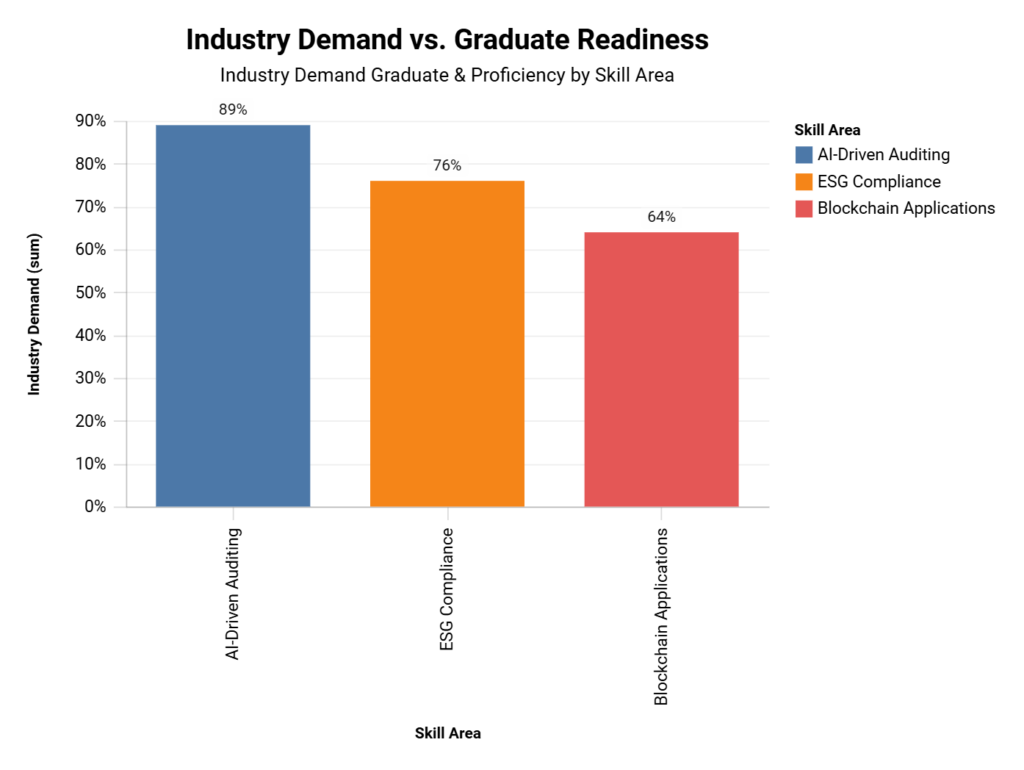
| Skill Area | Industry Demand | Graduate Proficiency |
|---|---|---|
| AI-Driven Auditing | 89% | 29% |
| ESG Compliance | 76% | 18% |
| Blockchain Applications | 64% | 12% |
Strategic Solutions for 2025
Curriculum Modernization
- Micro-Credentials: 83% of employers prioritize candidates with certified AI/automation skills
- Hybrid Learning: AR tax simulations boost retention rates by 37% (Future of Accounting 2025)
- Real-World Scenarios: Courses with complex case studies improve workplace readiness by 52% (CPA Journal 2023)
Policy Interventions
- IRA Training Grants: $8,500/student incentives for green accounting programs
- Competency-Based Hiring: Skills assessments correlate with 31% better retention
Launch your accounting career through accelerated 4-16 week programs in AI auditing and ESG reporting. Start your free introductory module to join 28,000+ graduates in high-demand financial roles.
Source Data
| Article Title | Publication | Date |
|---|---|---|
| CPA Exam Trends Analysis | CPA Journal | 10/12/2020 |
| AI in Accounting Adoption Survey | Intuit QuickBooks | 06/24/2024 |
| Accounting Education Reform Report | Xenett | 12/16/2024 |
| Skills Alignment Study | University of San Jose-Recoletos | 12/20/2023 |
| Future of Accounting Guide | Future Firm | 03/06/2025 |

